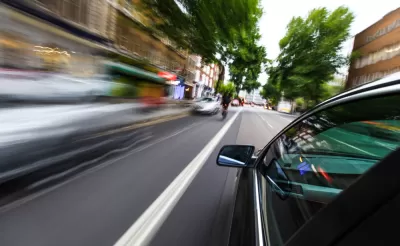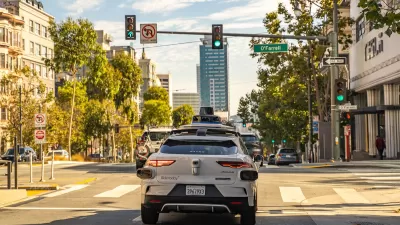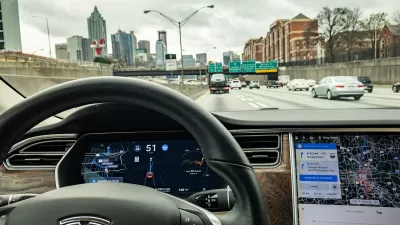With traffic deaths rising around the country, the National Highway Traffic Safety Administration is moving to address speeding and regulate autonomous vehicles.

According to a Reuters article by David Shepardson, the National Highway Traffic Safety Administration (NHTSA) is making a push to emphasize the dangers of speeding and encourage safe driving, as well as moving to more strictly regulate vehicle automation. In an interview with Reuters, NHTSA Administrator Steven Cliff “said NHTSA is moving aggressively to get new regulations out and ‘kicking off a lot of rulemakings related to automation.’ Since January 2021, the agency has finalized 16 rules and begun work on 25 new rules,” Shepardson reports.
Cliff says speeding should “‘be as undesirable and seen as negatively as other types of bad’ driving habits.” The initiative comes as traffic deaths grow. “In 2020, the number of speeding-related traffic deaths increased by 17% to 11,258, while overall traffic deaths rose 7.2%. In 2021, U.S. traffic deaths jumped 10.5% to 42,915, the highest annual number killed on American roads in a year since 2005.”
The agency is working on several issues related to autonomous vehicles, including their investigation of Tesla’s advanced driver assistance system. “NHTSA is holding talks with automakers and safety advocates about a potential demonstration program for autonomous vehicles.” Cliff told Reuters, “Ultimately I see that leading to some sort of demonstration program that can help us better understand how safety would be evaluated in determining whether it's appropriate to pull a human driver from the vehicle itself in widespread deployment.”
FULL STORY: U.S. auto safety agency plans new push against speeding

Planetizen Federal Action Tracker
A weekly monitor of how Trump’s orders and actions are impacting planners and planning in America.

Map: Where Senate Republicans Want to Sell Your Public Lands
For public land advocates, the Senate Republicans’ proposal to sell millions of acres of public land in the West is “the biggest fight of their careers.”

Restaurant Patios Were a Pandemic Win — Why Were They so Hard to Keep?
Social distancing requirements and changes in travel patterns prompted cities to pilot new uses for street and sidewalk space. Then it got complicated.

Platform Pilsner: Vancouver Transit Agency Releases... a Beer?
TransLink will receive a portion of every sale of the four-pack.

Toronto Weighs Cheaper Transit, Parking Hikes for Major Events
Special event rates would take effect during large festivals, sports games and concerts to ‘discourage driving, manage congestion and free up space for transit.”

Berlin to Consider Car-Free Zone Larger Than Manhattan
The area bound by the 22-mile Ringbahn would still allow 12 uses of a private automobile per year per person, and several other exemptions.
Urban Design for Planners 1: Software Tools
This six-course series explores essential urban design concepts using open source software and equips planners with the tools they need to participate fully in the urban design process.
Planning for Universal Design
Learn the tools for implementing Universal Design in planning regulations.
Heyer Gruel & Associates PA
JM Goldson LLC
Custer County Colorado
City of Camden Redevelopment Agency
City of Astoria
Transportation Research & Education Center (TREC) at Portland State University
Camden Redevelopment Agency
City of Claremont
Municipality of Princeton (NJ)





























